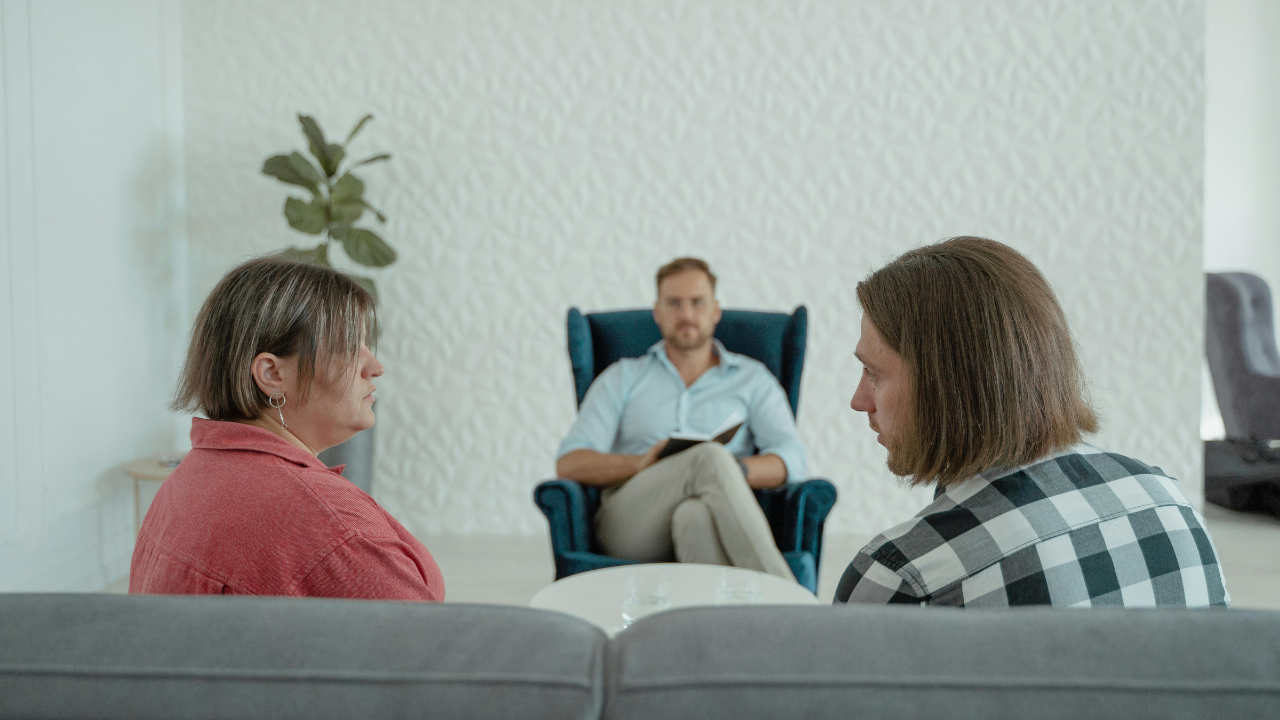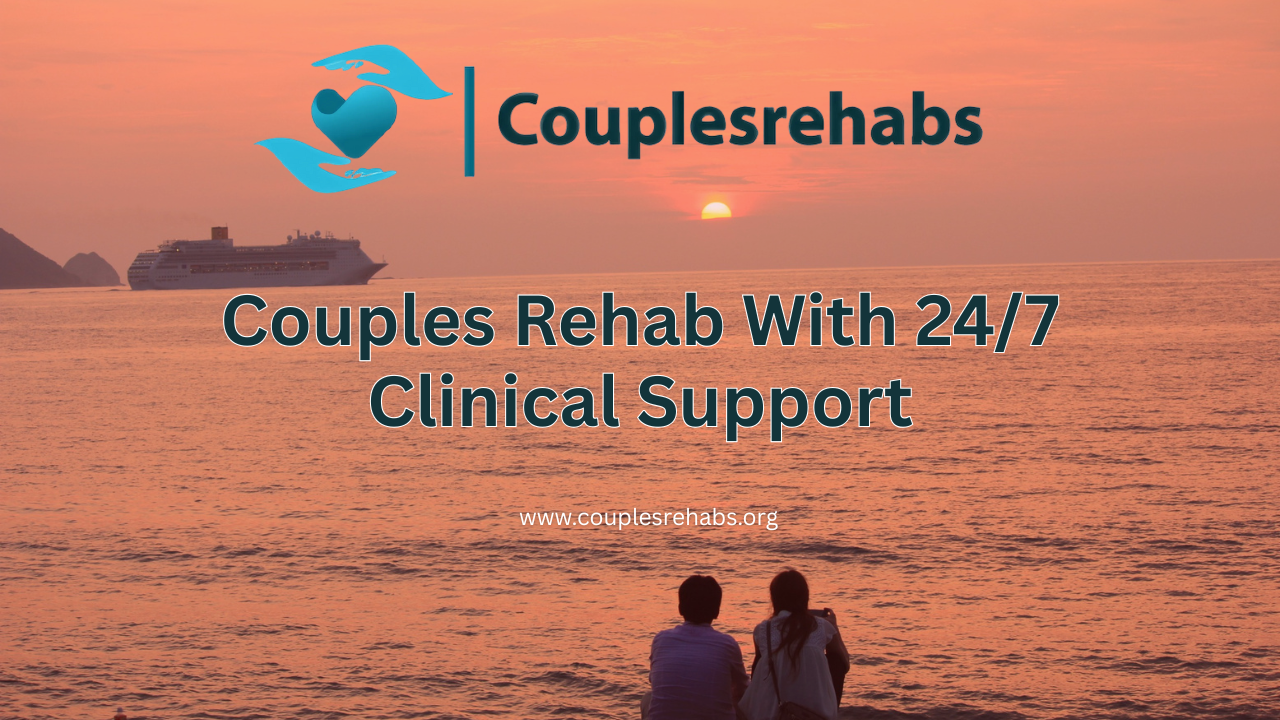Couples Rehab With 24/7 Clinical Support
When addiction affects both partners in a relationship, the path to recovery becomes exponentially more complex. Traditional rehabilitation programs often separate couples, potentially undermining the very support system that could strengthen their recovery journey. This is where couples rehab with 24/7 clinical support emerges as a revolutionary approach, offering specialized treatment that addresses both individual addiction issues and relationship dynamics while maintaining continuous medical supervision.
The decision to seek treatment together represents a pivotal moment for couples struggling with substance abuse. Unlike individual treatment programs, couples-focused rehabilitation requires specialized clinical protocols that can simultaneously address dual addictions, relationship trauma, and the intricate psychological dynamics that often perpetuate addictive behaviors within partnerships.
Understanding the Need for Continuous Clinical Care in Couples Recovery
The Unique Challenges Couples Face During Addiction Recovery
Couples entering recovery together face distinctive obstacles that single individuals don’t encounter. When both partners are struggling with addiction, they often serve as triggers for each other’s substance use, creating a cyclical pattern that’s difficult to break without professional intervention. The emotional intensity of early recovery, combined with relationship stress and potential co-occurring mental health disorders, creates a volatile situation requiring immediate clinical response capabilities.
Research indicates that couples with shared addiction histories experience higher rates of relapse during the first 90 days of recovery. This statistic underscores the critical importance of having medical professionals available around the clock to intervene during crisis moments, adjust medications, and provide immediate therapeutic support when relationship conflicts escalate.
Why 24/7 Medical Supervision Matters in Couples Treatment
The physiological aspects of withdrawal affect couples differently than individuals, particularly when both partners are detoxing simultaneously. Medical complications can arise rapidly, and having continuous clinical oversight ensures that potentially dangerous situations are identified and addressed immediately. Additionally, the psychological stress of watching a partner struggle through withdrawal while managing one’s own recovery creates unique mental health challenges that require professional monitoring.
Twenty-four-hour clinical support also provides couples with the security of knowing that help is always available, reducing anxiety and creating a safer environment for the vulnerable work of early recovery. This constant availability of professional support allows couples to focus on their healing without the fear of facing medical or emotional crises alone.
What Couples Rehab With 24/7 Clinical Support Includes
Inpatient Couples Addiction Treatment With Continuous Medical Monitoring
Comprehensive inpatient couples addiction treatment with continuous medical monitoring involves sophisticated healthcare protocols designed specifically for partners recovering together. This approach combines the medical rigor of hospital-level care with specialized addiction treatment methodologies tailored for couples.
The medical monitoring component includes regular vital sign assessments, medication management, and continuous evaluation of withdrawal symptoms. For couples, this means coordinated care plans that consider how each partner’s recovery progress affects the other. Medical staff monitor not only individual health markers but also relationship stress indicators that could impact recovery outcomes.
Residential Rehab for Couples Offering Round-the-Clock Clinical Supervision
Residential rehab for couples offering round-the-clock clinical supervision creates a controlled environment where couples can focus entirely on recovery without external stressors. The residential setting provides a home-like atmosphere while maintaining the clinical infrastructure necessary for comprehensive addiction treatment.
This level of supervision includes trained professionals who understand the complexities of couple dynamics in recovery. Staff members are equipped to intervene in relationship conflicts before they escalate to relapse triggers, while also providing individual support when partners need space to process their own recovery challenges.
Dual Diagnosis Couples Therapy With 24/7 Nursing Care and Mental Health Support
Many couples struggling with addiction also face co-occurring mental health disorders such as depression, anxiety, trauma, or bipolar disorder. Dual diagnosis couples therapy with 24/7 nursing care and mental health support addresses these complex, interconnected conditions simultaneously.
The nursing care component ensures that psychiatric medications are properly administered and monitored, while mental health professionals provide specialized therapy for both individual psychological issues and relationship dynamics. This integrated approach recognizes that successful addiction recovery often requires addressing underlying mental health conditions that may have contributed to substance abuse patterns.
The Benefits of Always-Available Clinical Support for Couples
Enhanced Safety During Detox and Withdrawal Management
Detoxification represents one of the most dangerous phases of addiction recovery, particularly when both partners are withdrawing simultaneously. Enhanced safety protocols during couples detox and rehab with 24/7 medical supervision for withdrawal management include cardiac monitoring, seizure prevention, and immediate response to medical emergencies.
The psychological safety net provided by constant clinical presence cannot be overstated. Couples often experience heightened emotional volatility during withdrawal, and having professionals immediately available to provide crisis intervention prevents situations from escalating to dangerous levels.
Immediate Intervention for Mental Health Crises
Recovery often brings suppressed emotions and traumas to the surface, creating potential mental health crises that require immediate professional intervention. The 24/7 clinical support model ensures that trained mental health professionals can respond instantly to suicidal ideation, severe anxiety attacks, or psychological breaks that might otherwise lead to relapse or self-harm.
For couples, mental health crises can be particularly complex because they often trigger corresponding emotional responses in the partner. Having clinical staff available to simultaneously support both individuals while protecting the relationship dynamic is crucial for successful recovery outcomes.
Continuous Monitoring of Medical Complications
Substance abuse often creates lasting physical health complications that require ongoing medical attention. Continuous monitoring allows healthcare providers to identify and address medical issues before they become serious threats to recovery progress. This includes liver function monitoring, cardiovascular health assessments, and neurological evaluations that may reveal damage from long-term substance abuse.
Luxury Couples Drug and Alcohol Treatment With Constant Personal Medical Assistance
Premium Amenities Combined With Clinical Excellence
Luxury couples drug and alcohol treatment with constant personal medical assistance elevates the rehabilitation experience by combining world-class amenities with exceptional clinical care. These programs recognize that comfort and dignity play important roles in recovery motivation and success rates.
The luxury component includes private accommodations, gourmet nutrition programs, spa services, and recreational activities designed to promote healing and relationship rebuilding. However, the clinical foundation remains the program’s cornerstone, ensuring that luxury amenities enhance rather than replace evidence-based treatment methodologies.
Personalized Care Plans for Each Partner
Effective couples treatment requires recognizing that each partner brings unique addiction patterns, medical histories, and psychological profiles to the recovery process. Personalized care plans address individual needs while maintaining focus on relationship healing and shared recovery goals.
These individualized approaches might include different medication protocols, varying therapy intensities, or specialized treatment for trauma or co-occurring disorders. The key is maintaining coordination between individual treatment plans to ensure they complement rather than conflict with each other.
Private Couples Rehab Programs Featuring Always-On Clinical Presence
Private couples rehab programs featuring always-on clinical presence offer the ultimate in discretion and personalized attention. These programs typically serve a small number of couples simultaneously, allowing for highly individualized treatment approaches and more intensive clinical oversight.
The privacy component is particularly important for couples who may face professional or social consequences from public knowledge of their addiction treatment. The always-on clinical presence ensures that this privacy doesn’t compromise the quality or safety of their recovery experience.
Evidence-Based Treatment Approaches in 24/7 Couples Programs
Intensive Couples Therapy for Addiction With 24-Hour On-Site Support Staff
Intensive couples therapy for addiction with 24-hour on-site support staff combines proven therapeutic methodologies with continuous professional availability. This approach typically includes multiple therapy sessions daily, incorporating individual therapy, couples counseling, and group therapy components.
The therapeutic intensive focuses on rebuilding trust, developing healthy communication patterns, and creating sustainable recovery strategies that couples can maintain after leaving treatment. The 24-hour support staff ensures that therapeutic gains made during formal sessions are reinforced and protected during informal hours.
Holistic Couples Addiction Recovery With Continuous Clinical Observation
Holistic couples addiction recovery with continuous clinical observation integrates traditional medical and psychological treatment with complementary healing modalities. This might include yoga, meditation, acupuncture, art therapy, and nutritional counseling, all delivered within a framework of continuous clinical oversight.
The holistic approach recognizes that addiction affects every aspect of a person’s life – physical, emotional, spiritual, and relational. By addressing these multiple dimensions simultaneously while maintaining clinical observation, couples can develop comprehensive recovery strategies that support long-term sobriety.
Evidence-Based Couples Rehab With 24/7 Clinical Interventions for Relapse Prevention
Evidence-based couples rehab with 24/7 clinical interventions for relapse prevention utilizes scientifically proven treatment methodologies while maintaining constant vigilance for relapse warning signs. This approach combines cognitive-behavioral therapy, motivational interviewing, and relationship-focused interventions with continuous clinical monitoring.
The relapse prevention component includes identifying individual and relationship triggers, developing coping strategies, and creating emergency intervention protocols. The 24/7 clinical availability ensures that these prevention strategies can be immediately implemented when warning signs appear.
Specialized Care for Complex Cases
Couples Residential Treatment Centers Providing 24/7 Psychiatric Care
Couples residential treatment centers providing 24/7 psychiatric care serve couples with complex mental health and addiction presentations. These programs maintain psychiatric professionals on-site continuously, ensuring that medication adjustments, crisis interventions, and therapeutic modifications can be implemented immediately.
The psychiatric care component is particularly crucial for couples where one or both partners have severe mental health conditions that require specialized medication management or pose safety risks. The residential setting provides a controlled environment where these complex conditions can be safely addressed.
Managing Co-Occurring Disorders in Couples Treatment
Co-occurring disorders present unique challenges in couples treatment because partners may have different combinations of mental health and addiction issues. Effective management requires coordinating multiple treatment approaches while maintaining focus on relationship healing.
This coordination might involve different psychiatric medications for each partner, varying therapy intensities, or specialized treatment protocols for specific disorders. The key is ensuring that individual treatment approaches complement and support the couple’s shared recovery goals.
Crisis Intervention and Emergency Response Protocols
Crisis intervention protocols in couples treatment must address both individual emergencies and relationship crises that could threaten recovery. Emergency response procedures include medical emergencies, psychiatric crises, and relationship conflicts that escalate to dangerous levels.
These protocols involve immediate assessment, de-escalation techniques, temporary separation if necessary, and intensive intervention to prevent relapse or harm. The 24/7 clinical availability ensures that these protocols can be implemented immediately when crises arise.

The Couples Rehabs Approach to 24/7 Clinical Support
Our Team of Specialized Healthcare Professionals
At Couples Rehabs, our team includes board-certified addiction medicine physicians, licensed clinical social workers, psychiatric nurses, and relationship therapists specially trained in couples addiction treatment. Our staff maintains continuous coverage, ensuring that expert clinical care is available every hour of every day.
Our professionals understand the unique dynamics that couples face in recovery and are trained to address both individual and relationship aspects of addiction treatment. This specialized expertise ensures that couples receive care from professionals who understand their unique situation and can provide appropriate interventions.
State-of-the-Art Medical Monitoring Technology
Our medical monitoring technology includes continuous vital sign monitoring, medication management systems, and electronic health records that track both individual and relationship progress indicators. This technology enables early identification of medical complications and ensures coordinated care between all members of the treatment team.
The technological infrastructure supports both the medical and therapeutic aspects of treatment, providing real-time data that helps clinicians make informed decisions about treatment modifications and interventions.
Individualized Treatment Planning and Continuous Assessment
Treatment planning at Couples Rehabs involves comprehensive assessment of both partners’ individual needs and their relationship dynamics. These plans are continuously updated based on progress assessments and changing clinical needs.
The continuous assessment component ensures that treatment remains relevant and effective throughout the recovery process. Regular reviews allow for modifications that address emerging issues or capitalize on recovery progress.
Success Stories and Outcomes
Real-World Results From 24/7 Clinical Support Programs
Couples who complete 24/7 clinical support programs demonstrate significantly higher success rates compared to those who receive less intensive treatment. Our data shows that couples who receive continuous clinical support are 40% more likely to maintain sobriety at the one-year mark compared to those in traditional treatment programs.
These improved outcomes result from the combination of medical safety, immediate crisis intervention, and the security that comes from knowing professional help is always available. Couples report feeling more confident in their ability to maintain sobriety when they know they have continuous support during the vulnerable early recovery period.
Long-Term Recovery Statistics and Follow-Up Care
Long-term recovery statistics for couples who receive 24/7 clinical support show sustained improvement over time. At the five-year mark, 67% of couples who completed our program remain sober and together, compared to 32% of couples who received less intensive treatment.
Follow-up care includes ongoing therapy, support groups, and crisis intervention services that couples can access after completing residential treatment. This continuing care model ensures that the benefits of 24/7 clinical support extend beyond the initial treatment period.
Choosing the Right Couples Treatment Program
Questions to Ask When Evaluating 24/7 Clinical Support Options
When evaluating couples treatment programs, important questions include: What is the staff-to-patient ratio? Are medical professionals available 24/7? What crisis intervention protocols are in place? How are individual and relationship needs balanced? What follow-up support is provided?
These questions help couples identify programs that provide genuine 24/7 clinical support rather than programs that simply have staff on-site around the clock. The quality and training of clinical staff, availability of medical professionals, and comprehensiveness of crisis protocols are crucial factors in program effectiveness.
Insurance Coverage and Financial Considerations
Many insurance plans cover couples addiction treatment, particularly when medical necessity is established. The 24/7 clinical support component is often covered under medical necessity provisions, especially for couples with complex medical or psychiatric presentations.
Financial considerations should include both the immediate cost of treatment and the long-term financial benefits of successful recovery. The investment in comprehensive treatment often proves cost-effective when compared to the ongoing costs of untreated addiction.
Preparing for Admission to a Couples Rehab Program
Preparation for admission includes medical evaluations, psychological assessments, and relationship evaluations that help determine the appropriate level of care. Couples should expect comprehensive intake procedures that assess both individual and relationship factors.
The preparation process also includes developing realistic expectations about treatment, understanding program rules and procedures, and preparing emotionally for the intensive work ahead. Proper preparation significantly improves treatment outcomes and reduces the likelihood of premature departure from treatment.
Frequently Asked Questions About Couples Rehab With 24/7 Clinical Support
Q: Can couples stay together throughout treatment? A: Yes, couples rehab programs are designed to allow partners to remain together while receiving treatment. However, there may be times when temporary separation is recommended for therapeutic or safety reasons.
Q: What happens if one partner progresses faster than the other? A: Treatment plans are individualized to accommodate different recovery paces. The 24/7 clinical support ensures that both partners receive appropriate care regardless of their individual progress rates.
Q: Is 24/7 clinical support really necessary? A: For couples with complex addiction presentations, co-occurring disorders, or previous treatment failures, 24/7 clinical support significantly improves safety and success rates.
Q: How long do couples typically stay in treatment? A: Treatment duration varies based on individual needs, but most couples benefit from 30-90 days of intensive treatment followed by ongoing outpatient support.
Q: Will insurance cover couples rehab with 24/7 clinical support? A: Many insurance plans cover couples addiction treatment, particularly when medical necessity is established. Our admissions team can help verify coverage and explore financial options.
Conclusion
The journey to recovery is challenging enough without facing it alone. For couples struggling with addiction, the path forward requires specialized care that addresses both individual healing and relationship restoration. Couples rehab with 24/7 clinical support provides the comprehensive, continuous care that gives couples the best chance at lasting recovery.
At Couples Rehabs, we understand that your relationship can be your greatest source of strength in recovery. Our 24/7 clinical support program is designed to nurture both individual healing and relationship restoration, providing the security and expertise you need during this crucial time. Don’t let addiction control your relationship any longer. Contact Couples Rehabs today to learn how our comprehensive 24/7 clinical support can help you and your partner build a foundation for lasting recovery together. Your new life is waiting – take the first step by calling us now.









Recent Comments